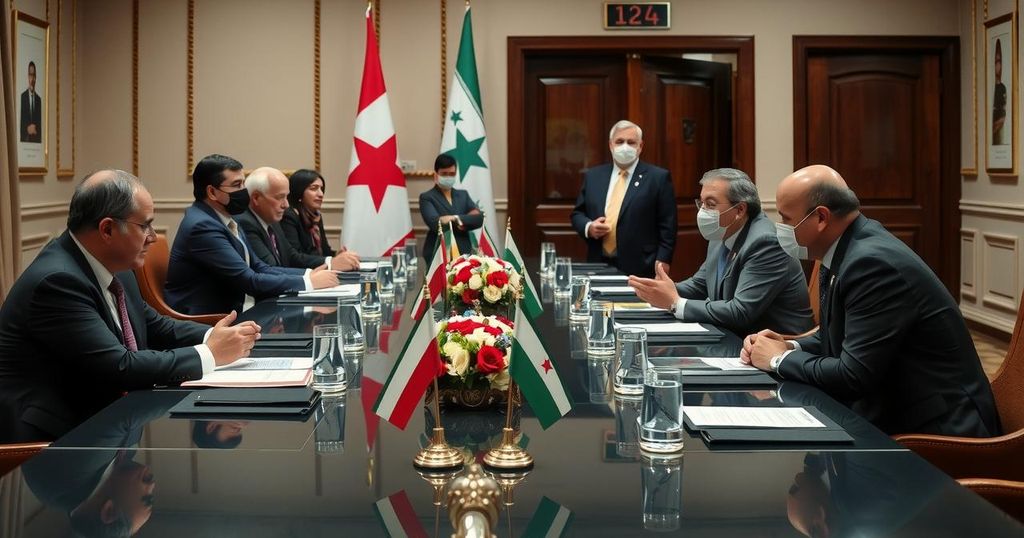U.S., Turkey, and Arab officials are supporting a peaceful transition in Syria, emphasizing the need for an inclusive government post-Assad. Discussions in Jordan highlighted concerns about chaos similar to Libya’s scenario and affirmed the preservation of Syrian institutions. Direct contact with rebel group HTS was confirmed by U.S. Secretary of State Antony Blinken, although skepticism surrounds HTS’s promises due to its past. The absence of Syrian representation and the exclusion of Iran and Russia reflect the complex dynamics at play in Syria’s future governance.
Officials from the United States, Turkey, and various Arab nations have reached a consensus to advocate for a peaceful transition in Syria following recent discussions held in Jordan. At a press conference in Aqaba, Jordanian Foreign Minister Ayman Safadi emphasized the regional desire to prevent Syria from descending into chaos. U.S. Secretary of State Antony Blinken also confirmed that there had been direct communication with the rebel group Hayat Tahrir al-Sham (HTS), which played a significant role in the ousting of President Bashar al-Assad.
A joint communiqué highlighted the need for a new Syrian government that is inclusive and respectful of minority rights while ensuring that it does not provide a refuge for terrorist groups. Iraqi Foreign Minister Fuad Hussein expressed shared concerns among regional players regarding Syria’s future, referencing the turmoil seen in Libya post-Gaddafi. He stated that the aim is to avoid a similar situation in Syria. Turkish Foreign Minister Hakan Fidan stressed the importance of preserving existing Syrian institutions, suggesting necessary reforms while preventing terrorism from exploiting the transition period.
Despite HTS’s declared intent for an inclusive government, skepticism remains due to its historical activities. Secretary Blinken mentioned ongoing communications with HTS, primarily concerning the case of missing American journalist Austin Tice, yet indicated that the U.S. has not rescinded HTS’s terrorist designation. Notably, no representatives from Syria were present at the talks, while eight Arab countries’ foreign ministers reasserted their commitment to a unified Syria that avoids sectarian division. Omitted from these negotiations were Iran and Russia, key supporters of Assad’s regime, highlighting the long-standing external influences affecting Syria’s stability.
The ongoing conflict in Syria has drawn significant international attention, with various nations involved in discussions aimed at establishing peace and stability. The U.S., Turkey, and several Arab countries are now engaging in collaborative efforts to facilitate a governance transition in Syria. The urgency of this initiative is underscored by the chaotic aftermath of regime changes in the region, such as in Libya, and the need for a cohesive approach to prevent sectarian divisions within Syria, thereby safeguarding the rights of all citizens amidst persistent threats of extremism.
In conclusion, the confluence of U.S., Turkish, and Arab officials advocating for a peaceful political transition in Syria marks a crucial step toward addressing the longstanding conflict. The call for an inclusive government capable of representing all Syrians is imperative to ensure regional stability. Nevertheless, skepticism persists regarding the ability of groups like HTS to implement these ideals, and the absence of vital stakeholders such as Russia and Iran casts further uncertainty on the future of Syria’s governance. Continuous collaboration and vigilance will be required to foster true unity and security in the region.
Original Source: www.bbc.com







